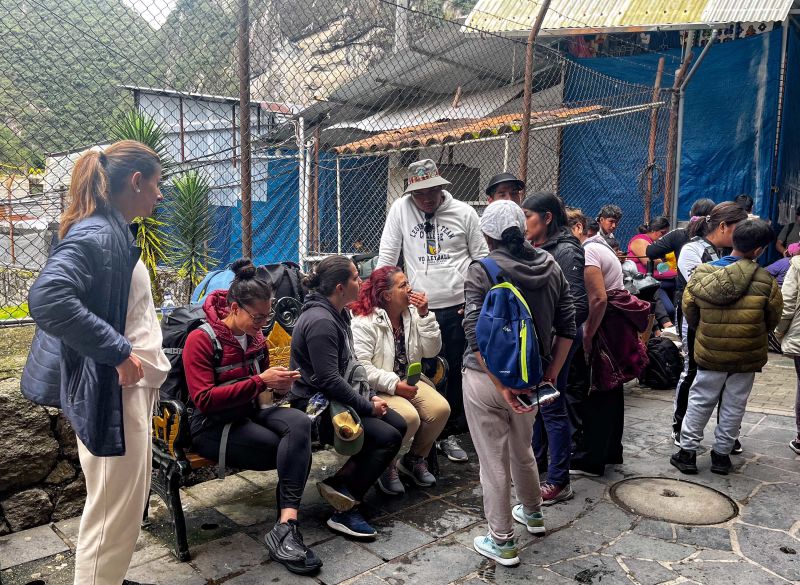
Protests in Peru Impact Access to Machu Picchu

The recent protests in Peru have disrupted access to Machu Picchu, a renowned heritage site in South America. The demonstrations stem from local discontent with a new ticketing system, resulting in the suspension of rail transport to the iconic Incan site and leaving numerous tourists stranded. The situation has raised concerns about the impact on tourism and the management of visitor numbers.
The Impact of Protests on Tourism
The protests in Peru have caused significant disruptions to the tourism industry, particularly in the region surrounding Machu Picchu. The suspension of train services to the ancient ruins has left hundreds of tourists unable to access the site, affecting travelers from around the globe. This latest setback comes as a blow to Perus tourism sector, which has already faced challenges due to widespread civil unrest last year, especially in the southern Andean region, a critical area for the countrys copper industry.
The protesters are blocking access to the popular heritage site.
The ongoing protests have prompted round-table discussions aimed at resolving the dispute between the authorities and protesters. Perus culture minister, Leslie Urteaga, has been actively involved in efforts to address the situation. However, a resolution to the indefinite strike led by travel unions, tour operators, and local residents is yet to be announced. The protesters are adamant in their stance, blocking access to the popular heritage site as a means of expressing their discontent with the new ticketing system.
Community representatives in Machu Picchu have voiced concerns that the new electronic ticket sales platform will negatively impact local businesses. They fear that the privatization of sales and the concentration of profits in a single firm will have detrimental effects on the local economy. Additionally, agencies responsible for the preservation of the site have warned about overcrowding and the overselling of tickets, necessitating new measures to manage visitor numbers effectively as travel picks up following the pandemic.
The New Ticketing System and its Controversy
The root of the protests lies in the introduction of a new ticketing system for Machu Picchu, which has sparked controversy and dissatisfaction among locals and industry stakeholders. The government's decision to consolidate ticket sales through an electronic platform has been met with resistance, leading to demonstrations and a suspension of rail transport to the iconic site. Critics argue that the new system will have adverse effects on the local economy and businesses, as profits are directed to a single firm, undermining the interests of the community.
The government, on the other hand, contends that the new ticketing platform, implemented in January, is intended to enhance the management of visitor numbers. By capping daily entries at 4,500, an increase from 3,800 last year, authorities aim to address concerns about overcrowding and site deterioration due to heavy visitor volumes. Despite these efforts, the dispute persists, with protesters steadfast in their opposition to the new system, citing its negative implications for the local economy and the heritage site's accessibility.
Challenges and Concerns for Machu Picchu
The recent events have underscored the challenges and concerns surrounding the preservation and sustainable management of Machu Picchu. The closure of the site in September 2021 due to deterioration caused by heavy visitor volumes highlighted the pressing need for effective measures to protect the UNESCO World Heritage Site. The introduction of the new ticketing system, while aimed at managing visitor numbers, has sparked fears of privatization and economic repercussions for the local community.
As the protests continue and access to Machu Picchu remains disrupted, the government and stakeholders face the daunting task of finding a balanced solution that addresses the concerns of the local community, ensures the sustainability of the heritage site, and promotes responsible tourism. The ongoing dialogue and negotiations between authorities, protesters, and industry representatives will play a crucial role in charting a path forward that safeguards the interests of all stakeholders while preserving the historical and cultural significance of Machu Picchu.







